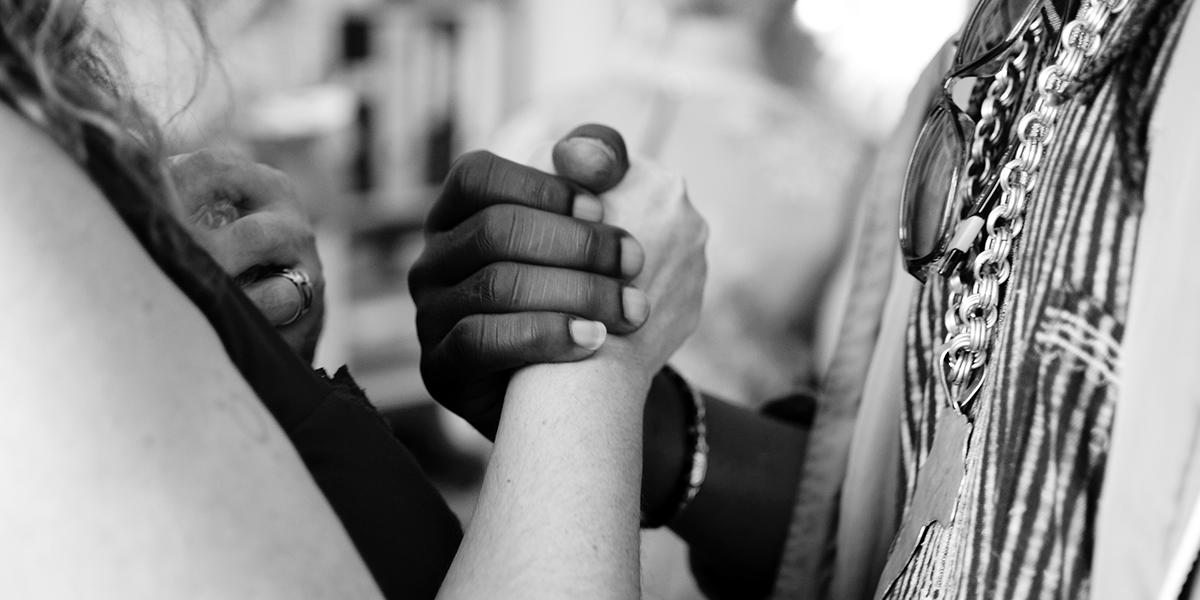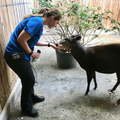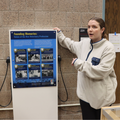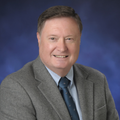- Issue:Published:Photo(s) by:Photo courtesy of Aarón Blanco Tejedor
Diversity and inclusion are at the center of a new discussion series organized by the VOICE Club (Veterinarians as One Inclusive Community for Empowerment) at the University of Minnesota College of Veterinary Medicine.
The first VOICE Club Diversity Panel Discussion held on October 29 featured a virtual panel of three CVM alumni who shared lessons learned and advice for navigating diversity challenges in the workplace with two dozen students.
Participating in the panel were Camille McAloney ’17 DVM, Hannah Onstott ’17 DVM, and Kayla Sample, ’18 DVM. The panelist took questions on topics that included whether they have faced discrimination in the workplace, how open they are about various aspects of their identity to coworkers and clients, and how important support systems are for new veterinarians.
Sample, who is the veterinary medical director at the Monty Tech Veterinary Clinic in Fitchburg, Mass., told students that there are times where she has faced challenges in the workplace as a woman of color but hasn’t let it stop her from doing and enjoying her job.
We all have our own identities and all of those matter. All of those identities are what make you the veterinarian that you are and the best veterinarian you can be.
Kayla Sample, ’18 DVM
“We all have our own identities and all of those matter,” Sample says. “All of those identities are what make you the veterinarian that you are and the best veterinarian you can be. That’s because it helps you to identify and relate to clients who may be facing similar barriers.”
For some students, those barriers may center around acceptance of their gender identity or sexual orientation in the workplace. McAloney, who is a clinical pathology resident and PhD student at Ohio State University College of Veterinary Medicine, stressed the importance of having a support system as a new veterinarian, especially for members of the LGBTQ community or people of color.
“Be realistic about the fact that you know your own safety needs to come first,” McAloney says. “But there are still people out there who are going to treat you right. If you can find them, and when you do, hold on to them because they’re going to be the people that get you through it. That’s what matters.”
And you know, whether I’m gay or not does not make me a good or a bad doctor—that’s just me. It has no reflection on my medical capabilities.
Hannah Onstott ’17 DVM,
Onstott, who is a veterinarian for Shiloh Veterinary Hospital in York, Penn., encouraged students to be themselves in the workplace but to also understand there may be situations where their identity could be a point of contention with clients and to proceed with caution.
“It does get hard because as you get to know clients, they start to ask questions and you want to maintain your professionalism,” Onstott says. “And you know, whether I’m gay or not does not make me a good or a bad doctor—that’s just me. It has no reflection on my medical capabilities.”
October’s diversity panel discussion panel is the first of several planned by VOICE. More events are planned for the spring. Students attending the events receive Student American Veterinary Medical Association meeting credit hours.




